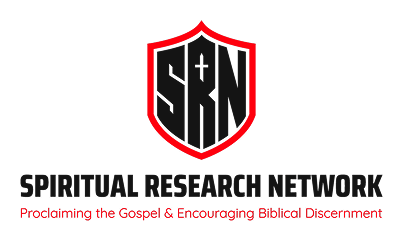In today’s spiritual climate, many beliefs blend. People borrow ideas from different faiths, creating a personalized mix of spirituality.
The New Age movement has gained popularity by promoting self-discovery, energy healing, and mystical experiences. At a glance, it may seem harmless or even compatible with Christianity. But major differences become clear when we compare New Age religion with Christianity.
Biblical Christianity is rooted in revealed truth—God’s Word. The New Age movement is based on personal experience, hidden knowledge, and subjective truth. Knowing the contrast helps believers recognize error, guard their faith, and reach others with clarity and love.
Key Differences Between New Age Religion and Christianity
Though often subtle, the contrasts between these belief systems affect how people see God, salvation, human nature, and truth. Below are core distinctions.
1. God: Personal Creator vs Impersonal Force
- Christianity: God is personal, eternal, holy, and sovereign. He created everything, reveals Himself through Scripture, and relates to His people as a loving Father. God is distinct from His creation (Genesis 1:1, Psalm 90:2).
- New Age: God is often described as an impersonal force or universal energy. The divine is seen in everything—people, nature, and the cosmos. This view leans toward pantheism or panentheism.
- Key difference: Christianity teaches that God is separate from creation. New Age teachings blur that line, promoting the idea that everything and everyone is divine.
2. Jesus: Savior vs Enlightened Teacher
- Christianity: Jesus is the Son of God, fully God and fully man. He lived a sinless life, died for our sins, and rose again. Salvation is only through Him (John 14:6, Acts 4:12).
- New Age: Jesus is often seen as a spiritual master, prophet, or enlightened man. His teachings may be admired, but He’s not viewed as the only way to God.
- Key difference: The gospel hinges on the deity of Christ and His atoning work. New Age teachings deny or minimize this central truth.
3. Truth: Objective Scripture vs Personal Experience
- Christianity: Truth is revealed by God through the Bible. Scripture is the final authority, unchanging and trustworthy (2 Timothy 3:16, John 17:17).
- New Age: Truth is seen as relative. Personal experience, intuition, and mystical insight are valid sources of truth. “What’s true for you” is common language.
- Key difference: Christianity calls believers to submit to God’s truth. New Age teachings promote the self as the source of truth.
4. Salvation: Grace vs. Self-Elevation
- Christianity: Salvation is by grace through faith in Jesus. It is a gift from God—not earned by good works, knowledge, or effort (Ephesians 2:8-9).
- New Age: Salvation isn’t seen as rescue from sin, but as enlightenment or awakening. The goal is self-realization, tapping into hidden potential, or ascending spiritually.
- Key difference: Christianity teaches we are sinners in need of a Savior. New Age views often teach that we are already divine—we must realize it.
5. Afterlife: Heaven and Hell vs Reincarnation or Energy Cycles
- Christianity: The Bible teaches that people die once and then face judgment (Hebrews 9:27). Those in Christ spend eternity with God; others are separated from Him.
- New Age: Beliefs vary, but many embrace reincarnation, karma, or becoming one with the universe. The afterlife is seen as a journey of evolving consciousness.
- Key difference: Christianity teaches a clear, eternal destination based on faith in Christ. New Age beliefs focus on endless spiritual progression without accountability.
Why the Differences in New Age Religion vs Christianity Matter
These aren’t small disagreements. They are fundamentally different worldviews. Mixing the two leads to confusion, spiritual compromise, and error. The Bible warns about false teachings and deceptive philosophies that appear spiritual but deny the gospel (Colossians 2:8, 2 Corinthians 11:14, 15).
Christians must remain grounded in God’s Word. Believers need discernment as New Age ideas continue to enter the church through books, practices, or language. It is possible to be sincere and sincerely wrong. Truth must guide us—not emotions, trends, or mystical experiences.
The New Age movement offers spiritual appeal without biblical truth. It promises peace, healing, and empowerment without repentance, the cross, or the real Jesus.
Do you want help comparing New Age teachings to biblical truth? Contact the Spiritual Research Network. Our ministry is dedicated to helping believers test all things, recognize deception, and grow in discernment. We’re here to walk with you in truth.


.jpg)
